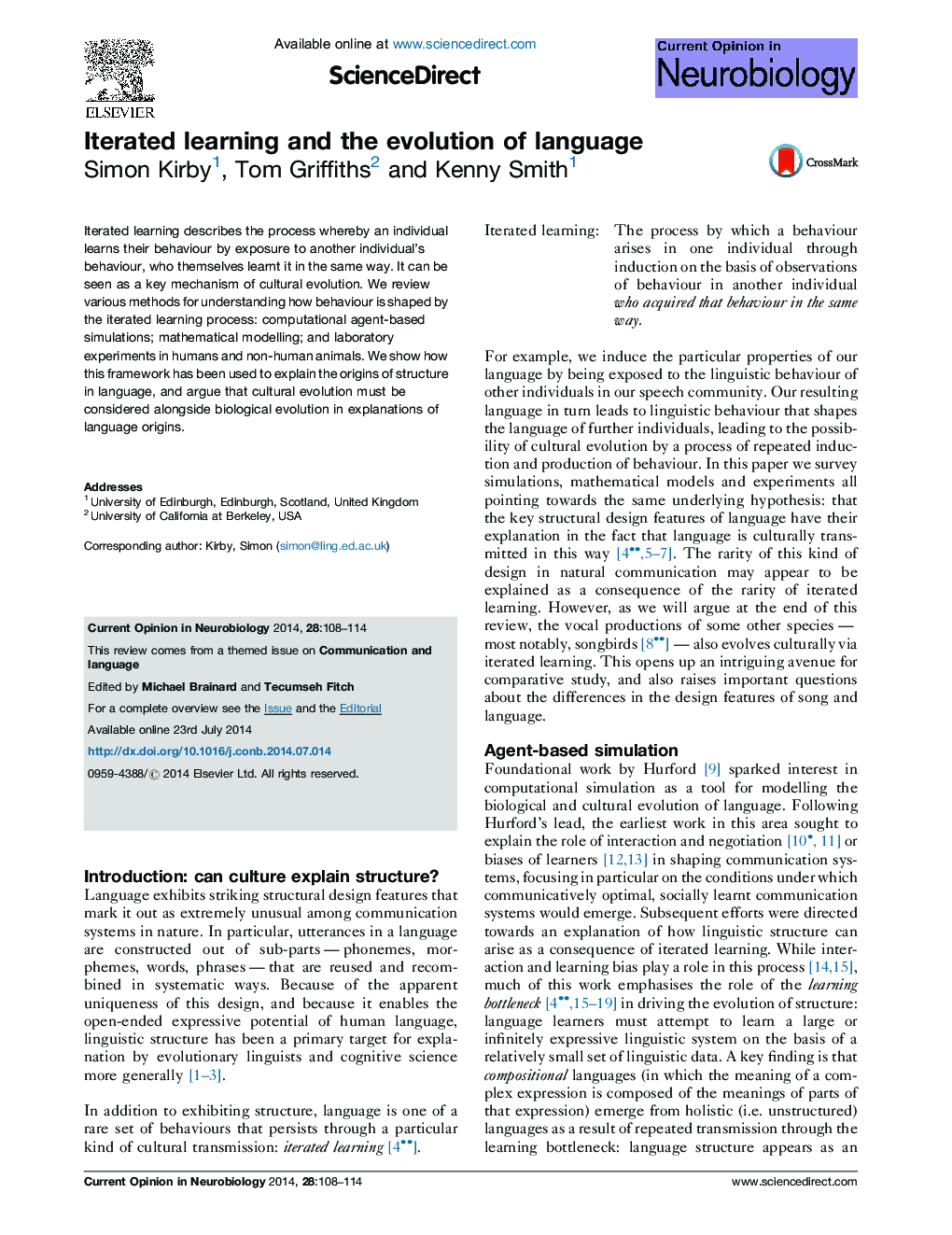| Article ID | Journal | Published Year | Pages | File Type |
|---|---|---|---|---|
| 6266672 | Current Opinion in Neurobiology | 2014 | 7 Pages |
Abstract
Iterated learning describes the process whereby an individual learns their behaviour by exposure to another individual's behaviour, who themselves learnt it in the same way. It can be seen as a key mechanism of cultural evolution. We review various methods for understanding how behaviour is shaped by the iterated learning process: computational agent-based simulations; mathematical modelling; and laboratory experiments in humans and non-human animals. We show how this framework has been used to explain the origins of structure in language, and argue that cultural evolution must be considered alongside biological evolution in explanations of language origins.
Related Topics
Life Sciences
Neuroscience
Neuroscience (General)
Authors
Simon Kirby, Tom Griffiths, Kenny Smith,
